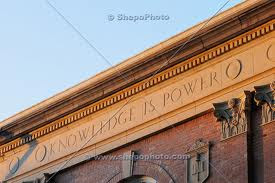Thursday, December 29, 2011
Human Spirit’s Self-Liberation
The Next Level—Our Modern Episteme
Jan. ’12
Pre-moderns (the human spirit’s pursuit of self-liberation), as participating agents in an environment conceived holistically, objectify mind and culture in and through creative acts of differentiation. This process evolves out of the acquisition of life’s necessities and into the creation of more complex societal structures, e.g., kinship systems, sacred and profane boundaries, talismans, origin myths, etc. Thus, myth, or the mythical-religious consciousness of man, for Cassirer, is understood to be the precursor to the technological culture that, from the standpoint of utility, increases our ability to do work, as is makes life easier for all. However, this is not the end of the story. Self-liberation or the movement towards constancy, endurance and certainty continues to direct the human spirit’s progressive movement towards new forms of self-expression.
For Cassirer, myth and “myth making” becomes an expression of the human spirit/culture as it seeks to liberate itself from the restrictive conditions that hinder and retard the self-liberation process. In our present modern episteme, as Foucault likes to call it, however, the myth-centered universe of the Middle Ages has given ground to a more matter-centered, self-centered universe, a universe that, for Cassirer, represents a more spiritually liberated state, but, for Foucault, represents just another power/knowledge driven episteme, catering to the needs of those who desire and benefit most from power/knowledge relationships. Shortly, I will challenge this assumption by Foucault, but first I must add a bit more structure to Cassirer’s self-liberation world view. This structure comes from an unlikely source, the philosophy of Jean Paul Sartre.
Subscribe to:
Post Comments (Atom)







No comments:
Post a Comment